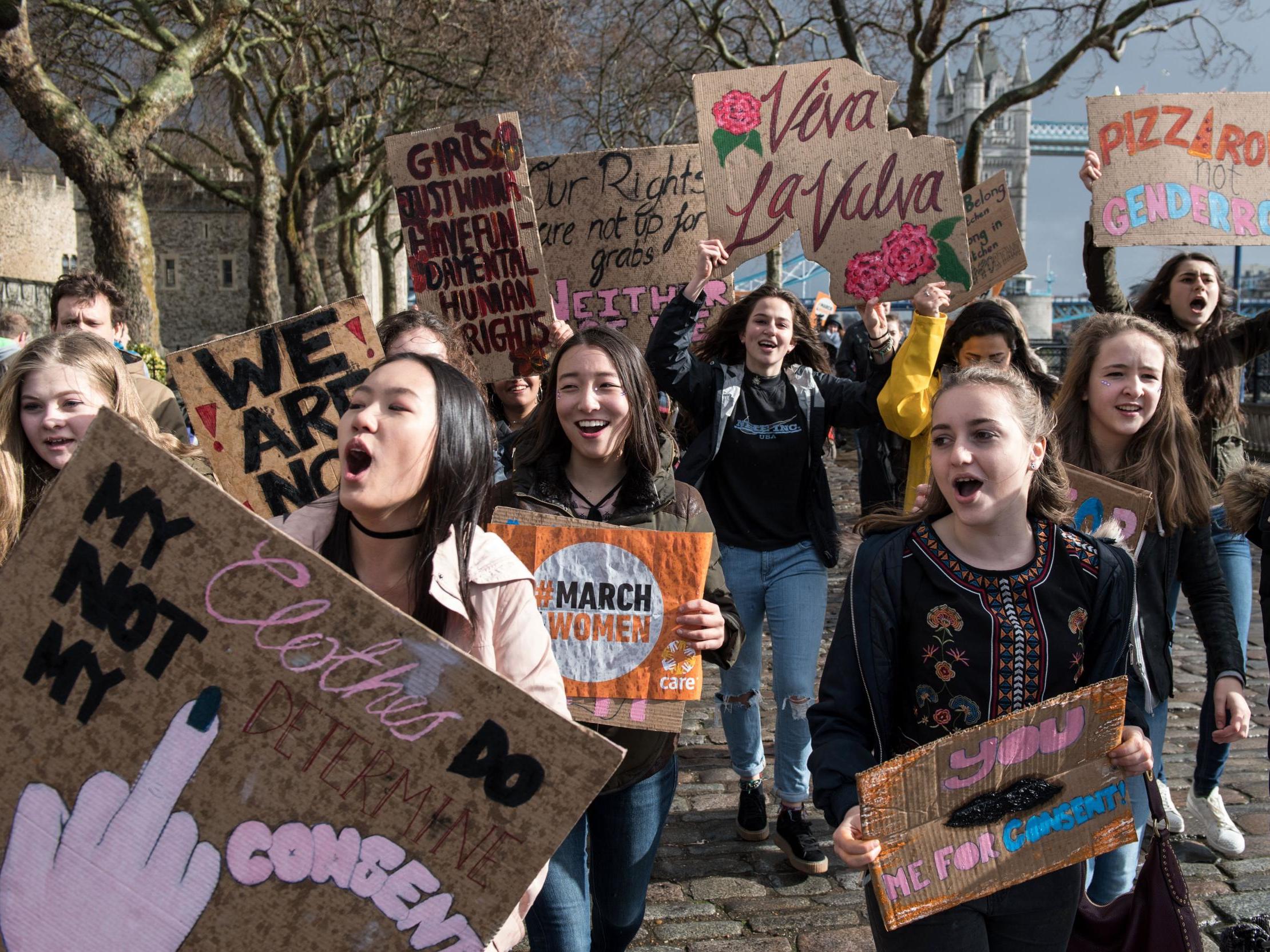Equality for women is generations away as men dominate every area of public life, warns leading charity
‘At this rate, our great-grandchildren will still be producing data that shows women missing from the top of public life and business,’ says Fawcett Society chief executive

Your support helps us to tell the story
From reproductive rights to climate change to Big Tech, The Independent is on the ground when the story is developing. Whether it's investigating the financials of Elon Musk's pro-Trump PAC or producing our latest documentary, 'The A Word', which shines a light on the American women fighting for reproductive rights, we know how important it is to parse out the facts from the messaging.
At such a critical moment in US history, we need reporters on the ground. Your donation allows us to keep sending journalists to speak to both sides of the story.
The Independent is trusted by Americans across the entire political spectrum. And unlike many other quality news outlets, we choose not to lock Americans out of our reporting and analysis with paywalls. We believe quality journalism should be available to everyone, paid for by those who can afford it.
Your support makes all the difference.Men dominate every sector of public life and equality for women remains “generations away” because progress on gender equality is “dismally slow”, a report has found.
The Fawcett Society says the under-representation of women in politics, the law, trade unions, the civil service, charities, professional institutions, and sports bodies is “consistent and persistent”.
The leading women’s rights charity’s 2020 Sex and Power Index found gender equality was “alarmingly” worse for women of colour who are totally absent from senior positions in many sectors.
Sam Smethers, Fawcett Society chief executive, said: “Despite much lip service about the importance of having women in top jobs, today’s data shows we are still generations away from achieving anything close to equality. We are wasting women’s talent and skills.
“Small, incremental changes in women’s representation are not good enough. For years, we have been told that equality for women is just a matter of time and we should be patient.
“But at this rate, our great-grandchildren will still be producing data that shows women missing from the top of public life and business. We have seen that real change can be delivered if there is a willingness to make it happen. That means quotas, targets and policy interventions to remove the barriers to women’s progression.”
The study found gender equality remains firmly entrenched in the legal profession – just two justices out of 12 are women in the Supreme Court and there has never been a Supreme Court judge who is a person of colour.
Women were found to make up just over one in 20 CEOs of FTSE 100 companies – with the breakdown remaining unchanged since the organisation’s last report in 2018.
While women make up 30 per cent of university vice-chancellors, they only constitute 21 per cent of national newspaper editors – with just four women in the senior roles.
Just 4 per cent of Premier League clubs are led by women and women only make up 21 per cent of national sport governing body CEOs which is a fall from 26 per cent in 2018.
Some 34 per cent of MPs are women, while 27 per cent of those in the House of Lords are women.
“The absence of women is not of their making,” the report warns. “Women continue to face a combination of discrimination, harassment and structural barriers which keep them out of the top of the institutions that govern our public, political and economic life.”
Researchers note women of colour, disabled women, and LGBT+ people are battling against “intersecting barriers and discrimination” which result in it being even harder for them to fill the top jobs.
Dr Zubaida Haque, deputy director of the Runnymede Trust, a prominent race equality organisation, said: “It’s astonishing to think that there has been a significant and growing black and ethnic minority population in this country (now one in six people) since the arrival of Empire Windrush in 1948 and yet we have never had a non-white Supreme Court judge, or a civil service permanent secretary or a CEO of FTSE 100 companies who is a woman of colour.
“There have been positive steps and achievements towards gender equality in some key areas of public life, but we cannot assume that generic gender initiatives and targets will also address racial discrimination issues for women of colour.”
Join our commenting forum
Join thought-provoking conversations, follow other Independent readers and see their replies
Comments